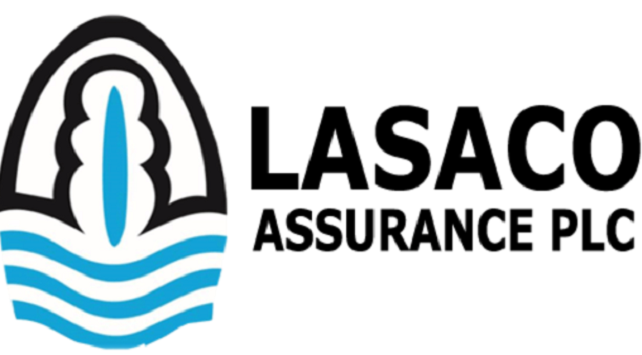/home/kenneth/web/nigeriacommunicationsweek.com.ng/public_html/wp-content/themes/zox-news/parts/post-single.php on line 153
">
Warning: Undefined array key 0 in /home/kenneth/web/nigeriacommunicationsweek.com.ng/public_html/wp-content/themes/zox-news/parts/post-single.php on line 153
Warning: Attempt to read property "cat_name" on null in /home/kenneth/web/nigeriacommunicationsweek.com.ng/public_html/wp-content/themes/zox-news/parts/post-single.php on line 153
Nipost Parleys Anco on Stamp Duty Enforcement
The Nipost Implementation and Monitoring Team is liaising with the Association of Nigeria Courier Operators (Anco) on effective implementation of stamp Duty Act by Nipost. The Stamp Duty Act makes it mandatory for organizations, government agencies and all establishments to affix fifty naira duty stamp issued by the Nigerian Postal Service on all receipts/invoices evidencing transactions of one thousand naira and above.
The Nipost Stamp Duty Implementation and monitoring Team made a representation at the Anco meeting held last month in Lagos. Charles Duruoha and Magnus Alagbogu of Nipost canvassed for cooperation of the courier professionals in achieving this objective. The Nipost team explained that they were not approaching the assignment from the angle of a conventional task force but to use every persuasive means to attract compliance.
The team said the cooperation of Anco in the agenda was strategic given the cordial relationship between the two bodies and that other sectors are looking up to Anco for successful implementation of the directive.
It would be recalled that the federal government of Nigeria through the Nigerian Postal service has decided to effectively implement the Stamp Duty Act of 1990 cap411 Vol. XX11 Laws of the Federal Republic of Nigeria as reviewed in 2004 chapter 58 Vol.XIV.
Registered courier operators are therefore expected to place their monthly, quarterly or yearly order for their offices nationwide. The Nipost team pledged to supply the stamps to every courier office that needs the stamps at no extra cost to them.
The Nipost Implementation and Monitoring Team also visited the maritime sector and asked for their cooperation with the directive. It was agreed between the stakeholders that September 1 should be the kick off date for the collection of stamp duty in the maritime sector. Victor Nwagbo, head of operations of the team confirmed to Nigeria Communications Week that the take off date remained sacrosanct.
The team is working round the clock to create the awareness for effective implementation of the act across the sectors in Nigeria. Nwagbo complained that the courier sector is still yet to comply strictly with the directive but said dialogue was still ongoing to achieve the desired collaboration. Toyin Olufade, Anco president, commenting on the issue said members will still be reminded in their next general meeting on the need to conform to the directive assuring that there is no issue with his members complying with that.
Nipost has in its bid to shore up its resource base in line with its reform agenda added fervour to the Stamp Duty Act which had been docile even when it was reviewed in 2004 and pegged a N50 billion target for the team for one year. Payment of stamp duty is not limited to any particular sector. Any monetary transaction exceeding one thousand naira attracts a fifty naira stamp to be affixed on the receipt /invoice of such a transaction to make it a legal transaction. Many people are still confused about stamp duty and there is need that Nipost engages in wide publicity to get everybody along .

Warning: Undefined array key 0 in /home/kenneth/web/nigeriacommunicationsweek.com.ng/public_html/wp-content/themes/zox-news/parts/post-single.php on line 493
Warning: Attempt to read property "cat_ID" on null in /home/kenneth/web/nigeriacommunicationsweek.com.ng/public_html/wp-content/themes/zox-news/parts/post-single.php on line 493
General News
FG Launches the Happy Woman App Platform

Federal government has unveiled a new digital platform to connect millions of women to finance, skills training, and market opportunities, in what officials call the country’s largest technology-driven women’s inclusion initiative to date.

The Happy Woman App Platform, which was unveiled at the Presidential Villa in Abuja, would serve as a single interface for women to access funding facilities, business development support, governmental initiatives, and critical services.
The digital drive comes as Nigeria grapples with expanding gender gaps in financial access, with women much less likely than males to maintain bank accounts or obtain formal credit, limiting their capacity to grow informal enterprises they primarily run.
Yet women remain central to the economy, accounting for a large share of micro and small enterprises that contribute nearly half of the country’s GDP.
According to the Social Institutions and Gender Index, only about 35 percent of Nigerian women have a bank account at a financial institution, compared with 55 percent of men, underscoring the depth of persistent financial exclusion and the urgency of targeted interventions.
The launch coincided with the expansion of the Nigeria for Women Programme, which the administration now plans to scale nationwide to reach 25 million women.
President Bola Tinubu, represented by vice president Kashim Shettima, said the scale-up is central to Nigeria’s economic growth strategy.
“A nation that relegates its women is a nation bound for implosion,” he said, adding that women must be placed “at the centre of national planning and productivity.”
The expanded programme builds on a pilot phase in six states that reached over one million women, many organised into Women Affinity Groups to access grants, savings schemes and livelihood support.
The government says the new app will streamline beneficiary registration, payments and training, reducing leakages and improving delivery.
News
Lasaco Assurance Gets Shareholders Approval to Advance Capitalization Plans

Lasaco Assurance Plc has received formal commitment letters from shareholders following its recent Extraordinary General Meeting, strengthening confidence in the company’s plan to raise additional capital in line with regulatory requirements and ongoing insurance sector reforms.

Speaking on the development, Ademoye Shobo, acting managing director of Lasaco Assurance Plc, said the confirmation from shareholders provides clarity and certainty as the company moves to execute its approved capital-raising strategy.
“The commitment letters from our shareholders give us the confidence to proceed with our capitalisation plans in line with the Nigerian Insurance Industry Reform Act (NIIRA) 2025 and other regulatory requirements guiding the insurance industry.
“We will leverage all available opportunities to raise the approved capital, and our existing shareholders should watch out for our rights issue as part of the process,” Shobo said.
With shareholders’ backing now formally documented, Lasaco Assurance Plc plans to actively pursue available funding options to deliver the approved capital raise. The company plans to deploy a mix of market-based instruments, including a rights issue and other permissible fundraising structures, to ensure timely and effective capital mobilisation.
The Management noted that the commitment letters reinforce investor confidence in the company’s growth strategy, governance framework, and long-term outlook. The capital raise is expected to support balance sheet strengthening, improve underwriting capacity, and provide greater flexibility for business expansion across core insurance segments.
As part of the process, existing shareholders have been advised to watch out for the forthcoming rights issue, which will provide them with the opportunity to participate proportionately in capital expansion. The company reaffirmed its intention to ensure transparency and regulatory compliance throughout the fundraising exercise.
Lasaco Assurance Plc views the capitalization drive as a strategic step toward sustaining competitiveness, enhancing risk-bearing capacity, and positioning the company for future growth within Nigeria’s insurance market. The initiative also aligns with broader industry efforts aimed at strengthening the company’s financial resilience and protecting policyholders’ interests.
News
Ecobank Nigeria to Host Customer Forum on Strengthening Regional Integration for Economic Transformation

Ecobank Nigeria is set to host the second edition of its Customer Forum, at the Ecobank Pan-African Centre, Ozumba Mbadiwe Avenue, Victoria Island, Lagos.

The forum, organised by the bank’s Fixed Income, Currencies and Commodities (FICC) Business (Treasury), is themed ‘Strengthening Regional Integration for Economic Transformation.’
It is designed to examine critical issues shaping Nigeria’s and Africa’s economic outlook in 2026, with particular focus on trade, financial markets, foreign exchange liquidity and regional integration, especially as the African Continental Free Trade Area (AfCFTA) agreement enters a strategic phase of implementation.
Announcing the event in Lagos, the Regional Treasurer, Ecobank Nigeria Limited, Olumide Adebayo, said the one-day programme reinforces the bank’s role as a trusted financial partner and customer-focused institution, with intention to foster dialogue, support informed decision-making and deeper regional economic integration across Africa.
According to him, the programme will open with welcome remarks by the Managing Director/Regional Executive, Ecobank Nigeria, Mr. Bolaji Lawal, who will underscore the bank’s commitment to supporting customers and driving inclusive growth through strategic dialogue, innovation and pan-African collaboration.
The keynote address, titled ‘The Future of Trade in Africa: Harnessing the AfCFTA for Economic Transformation,’ will be delivered by the Group Chief Economist & Managing Director, Research and Trade Intelligence, African Export-Import Bank (Afreximbank), Dr. Yemi Kale.
His address will provide insights into Africa’s trade prospects and the transformative potential of the AfCFTA.
The forum will feature two high-level panel discussions: balancing the Risk between Interest Rate and Exchange Rate: Business Expectations and Outlook in 2026 and Export Proceeds, Oil Receipts and Remittances in 2026: Exploring Options that Best Support FX Liquidity and Flows in Nigeria.
The event would be moderated by Messrs. Aruoture Oddiri, Host and Producer of Global Business Report on Arise News and Barnabas Vajeh of Ecobank Nigeria Limited.
Ecobank Nigeria is a member of the Ecobank Group, the leading pan-African banking institution with operations in 33 African countries and international offices in London, Paris, Beijing and Dubai.
With over 220 branches, more than 36,000 agency banking locations, and robust digital platforms, Ecobank delivers accessible, affordable, and instant banking services. The bank is strategically positioned to support pan-African trade, particularly under the African Continental Free Trade Area (AfCFTA).

 E-Financial2 days ago
E-Financial2 days agoAlawuba Advocates Security, Bankable Projects, Infrastructure Development to Promote South-East Vision

 Telecom1 day ago
Telecom1 day agoNCC Committed to Regional Digital Integration – Maida

 E-Financial1 day ago
E-Financial1 day agoCBN Expresses Concern Over Foreign Investments in Nigeria Fintechs

 General News1 day ago
General News1 day agoIndigenous Firm Deploys 400,000 Smart Electricity Meters in 2025

 E-Financial1 day ago
E-Financial1 day agoBOI Secures CBN Nod for Sharia Banking, Unlocks Ethical Funding Boom

 Telecom1 day ago
Telecom1 day agoITU Top Director Visits NITDA, Boosts Nigeria’s Digital Literacy Push

 E-Financial1 day ago
E-Financial1 day agoUBA’s Easy and Instant Account Opening Thrills Returnee

 News1 day ago
News1 day agoEFInA Unveils Research Fellowship Programme to Deepen Financial Inclusion Impact














